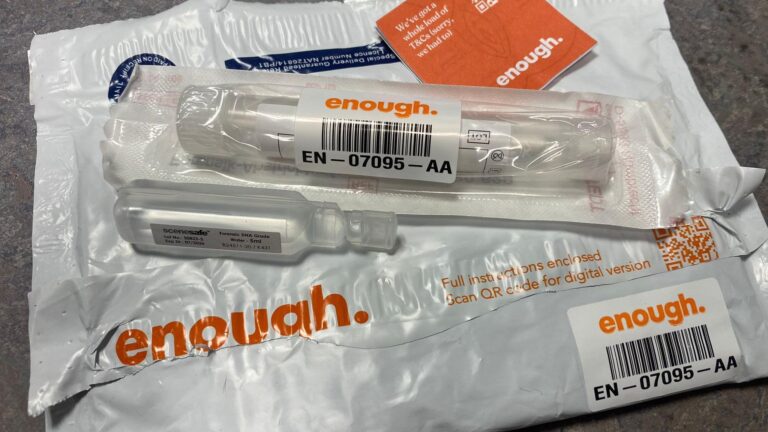San Francisco Woman Sues Over Unauthorized Use of Rape Kit DNA in Separate Criminal Case
A San Francisco resident has initiated a landmark lawsuit after her DNA, originally collected through a rape kit, was allegedly utilized without her consent to implicate her in an unrelated criminal investigation. This case exposes critical vulnerabilities in the management and ethical use of forensic evidence, particularly DNA, raising urgent questions about survivors’ rights and law enforcement accountability.
Experts in law and forensic science warn that this incident highlights systemic issues, including:
- Improper application of DNA evidence across unrelated cases
- Risks of wrongful accusations due to misuse of genetic data
- The pressing need for comprehensive reforms in forensic evidence protocols
| Category | Current Challenges | Recommended Reforms |
|---|---|---|
| DNA Evidence Application | Use without explicit consent beyond original case | Strict consent-based policies limiting cross-case use |
| Protection of Survivors | Insufficient legal safeguards | Enhanced laws prioritizing survivor autonomy and privacy |
| Oversight of Forensic Practices | Opaque procedures and limited accountability | Establishment of independent review boards |
Privacy and Consent: The Crux of Forensic Evidence Mismanagement
The controversy surrounding this case has ignited a broader discussion about the ethical handling of forensic samples, especially DNA collected from sexual assault victims. Critics argue that repurposing such sensitive biological material without explicit permission infringes on fundamental privacy rights and violates the principle of informed consent.
The plaintiff contends that her DNA, initially gathered to prosecute her assailant, was later accessed and employed without her knowledge to connect her to a different crime. This raises critical concerns about the limits of forensic evidence use and the protection of victims’ personal data.
Key issues fueling this debate include:
- Transparency Deficits: Victims often remain uninformed about how their DNA is stored, shared, or potentially reused.
- Ambiguous Consent Policies: Current regulations rarely mandate explicit consent for secondary uses of forensic data.
- Risk of Exploitation: DNA evidence can be misappropriated, threatening civil liberties and personal freedoms.
- Calls for Legislative Reform: Advocacy groups demand clearer, victim-centered policies to prevent misuse.
| Policy Element | Existing Practice | Suggested Improvement |
|---|---|---|
| Evidence Retention | Indefinite storage without victim notification | Time-limited retention with active victim consent |
| Data Sharing | Automatic sharing across agencies | Restricted access limited to relevant cases |
| Consent Requirements | Broad or implied consent | Explicit, case-specific consent mandatory |
Calls from Experts for Rigorous DNA Data Governance
Following the lawsuit, forensic scientists and legal professionals are advocating for a thorough revision of DNA data management practices. The primary concerns revolve around unauthorized access, potential exploitation, and the indefinite retention of sensitive genetic information without clear consent.
Experts emphasize several critical reforms:
- Implementation of robust encryption protocols to safeguard DNA databases from breaches.
- Defined procedures for the secure storage and timely destruction of forensic samples after case closure.
- Regular independent audits coupled with transparent public reporting to ensure accountability.
- Legislative measures that clearly limit the duration and scope of DNA data retention.
| Current Practice | Proposed Reform | Anticipated Outcome |
|---|---|---|
| Indefinite DNA sample storage | Retention limited by time with mandatory destruction | Minimized risk of data misuse |
| Minimal legal oversight | Independent regulatory bodies overseeing DNA data | Increased transparency and trust |
| Data sharing without explicit consent | Consent-driven access frameworks | Stronger privacy protections for individuals |
Advocacy for Transparency and Victim-Centered Justice
The lawsuit has galvanized civil rights organizations and victim advocacy groups, who stress the necessity of transparent forensic evidence handling and respect for survivors’ rights. The plaintiff’s experience—where her intimate genetic information was allegedly weaponized against her—exposes critical gaps in oversight and accountability within the criminal justice system.
Advocates are urging for:
- Independent audits of forensic DNA databases to detect and prevent misuse.
- Clear and enforceable consent protocols ensuring DNA is only used for its intended investigative purpose.
- Comprehensive tracking systems to monitor the collection, storage, and use of forensic evidence.
- Stronger legal protections to shield survivors from secondary victimization through improper law enforcement practices.
| Issue | Consequences | Advocate Recommendations |
|---|---|---|
| Unauthorized DNA Usage | Privacy breaches and wrongful accusations | Enforce strict consent requirements |
| Insufficient Evidence Oversight | Risk of evidence tampering and misuse | Mandate independent forensic audits |
| Weak Protections for Survivors | Secondary trauma and loss of trust | Implement robust legal safeguards |
Conclusion: Toward Ethical Forensic Practices and Victim Empowerment
This lawsuit underscores the critical need for reform in how forensic evidence, especially DNA from sexual assault survivors, is managed within the criminal justice system. Ensuring that such sensitive data is used exclusively for its intended purpose is essential to uphold victims’ dignity and privacy. The case could serve as a catalyst for nationwide policy changes, balancing effective crime-solving with the protection of individual rights.
As forensic technology advances and DNA databases expand—currently, over 20 million DNA profiles are stored in U.S. law enforcement databases—the importance of clear, ethical guidelines and stringent oversight becomes ever more pressing. This case highlights the urgent necessity to rebuild public trust through transparency, accountability, and respect for survivors’ autonomy.




